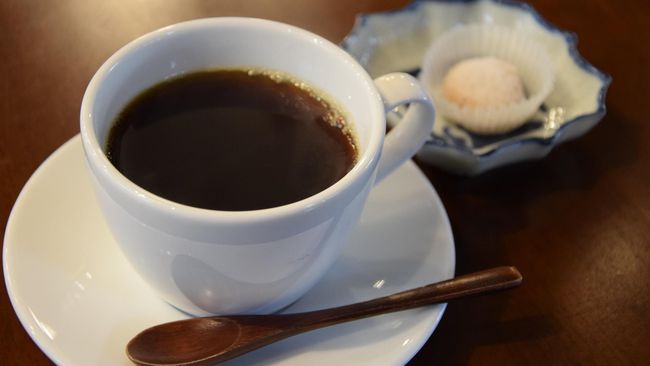Jakarta, CNN Indonesia –
Food which is not healthy can cause various diseases. It can also contribute to mood in sufferers bipolar. Certain foods can put your symptoms at risk of getting worse.
Therefore, there are a number of foods that people with bipolar disorder should avoid.
“Maintaining a healthy diet has the potential to benefit not only the symptoms of bipolar disorder but also reduce the burden of these co-occurring diseases,” said Rachel Bergmans, a researcher in the department of psychiatry at the University of Michigan Medical School in Ann Arbor. Everyday Health.
There is ample evidence that nutrition affects mental health, including mood in bipolar disorder.
For one, a study published in September 2015 in the Journal of Psychiatric Research found that certain fatty foods can cause poor mental health and overall dysfunction in people with bipolar disorder.
The following types of drinks and foods should be avoided by bipolar sufferers.
1. Caffeine
Caffeine is referred to as Caffeine is an unconscious bipolar trigger and can also disrupt sleep. This can be especially problematic because sleep deprivation is for bipolar and manic mood swings.
The National Sleep Foundation points out that in addition to affecting sleep, caffeine can increase distraction and anxiety. They also recommend avoiding caffeine near bedtime.
“These stimulants can trigger a manic and should be avoided,” said Jess G. Fiedorowicz, professor in the department of psychiatry and internal medicine at the University of Iowa Carver College of Medicine in Iowa City.
2. Alcohol
Alcohol and bipolar disorder are a bad combination. Alcohol can affect bipolar mood swings and can also interact negatively with drugs such as lithium, according to the National Alliance on Mental Illness (NAMI).
3. Gula
According to the results of a multicentre study published in June 2015 in the journal Acta Psychiatrica Scandinavica, eating a diet high in sugar can complicate weight control and obesity – and its associated belly fat – and make some bipolar disorder drug treatments less effective.
Instead, fruit will be better than eating sweet foods.
4. Salt
If you are taking lithium for bipolar disorder, you need to monitor your salt intake closely, as any sudden increase or decrease in the amount of sodium you consume can affect lithium levels.
According to the NAMI, people who take lithium should avoid diets that are low in sodium and dehydrated, because they can increase the risk of lithium poisoning.
Talk to your doctor about how to manage salt safely in your diet to keep it in a healthy range.
5. Fat
Fiedorowicz suggests following the heart-healthy recommendations of the American Heart Association to limit the amount of saturated fat and trans fat in the diet.
That means choosing lean protein and low-fat dairy products and eating lots of healthy fruits, vegetables and whole grains.
You may have heard that fat in food can change how the body receives medicine.
Generally, the drug is still effective, but eating a lot of fried, fatty foods is not good for the heart. And remember, that the oil used for frying contains high omega-6 fatty acids which need to be avoided.
(bait)
– .


